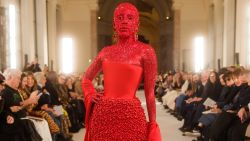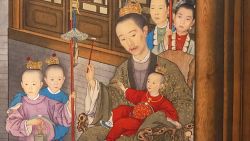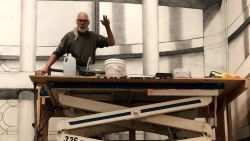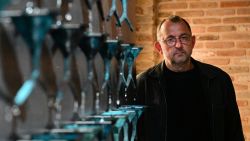Gender fluidity, social justice and sustainability were all recurring themes at this season’s London Fashion Week Men’s. Several designers not only presented their sartorial vision, they used the catwalk to share political and social views as well.
We went backstage to speak with three such labels, Art School, Bethany Williams, and Priya Ahluwalia, who are all using their skills to make collections that aren’t just surface deep.
Tom Barratt, one half of London-based Art School (with Eden Loweth) called the label a “queer luxury brand” that is “non-binary at heart.”
“Fashion has always been seen as lesser than art in culture but actually fashion is everything we do,” Barratt said before the catwalk show for their new collection, Fearless Love. “Everyone wears clothes, everyone has bodies… and everyone has to live in a world dictated by fashion. That’s why it’s such a crucial political tool. You can’t be apolitical.”
Bethany Williams, who last year was awarded the Queen Elizabeth II award for British design, used her show to bring attention to the issues faced by women and children living in temporary accommodation in the London borough of Newham.
From sourcing to production to delivery, each step in the process of creating her collections is an opportunity for Williams to work with organizations fighting for social change. This time around these included the Manx Workshop for the disabled, the Quaker Mobile Library and Wool and the Gang’s recycled wool program.
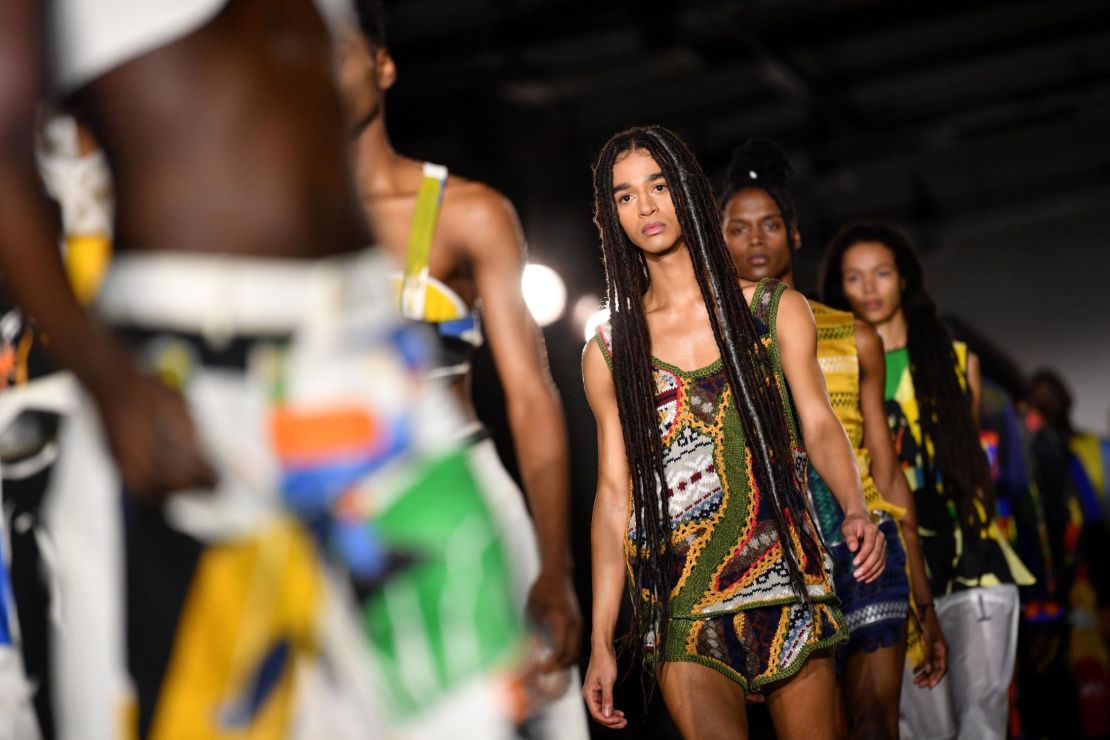
“Fashion has an ability to amplify ideas to a large audience,” Williams said. Adding that she likes to steer clear of seasonality and trends because “it’s not a very sustainable way of thinking.”
Up-and-comer Priya Ahluwalia, whose 1970s-inspired collection featured all repurposed or recycled materials, told us she is determined to find new ways to be a designer that don’t rely on environmentally or socially damaging practices.
“I’m trying to show you can make beautiful clothes but from better manufacturing processes,” she said. “It can be a limitation to your design process because certain things will be available, certain things won’t but then it pushes your creativity – you’ve got to work with something you didn’t think you were going to have to.”
Watch the video above to see more from the shows.


